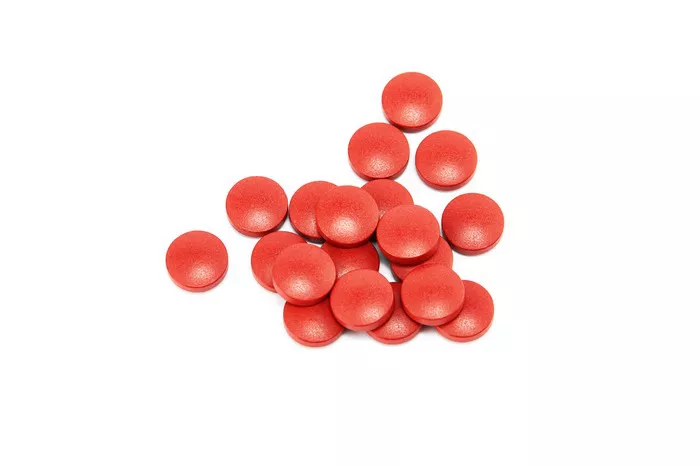Allergy shots, also known as allergy immunotherapy, are a common treatment option for individuals with allergies. Allergy shots work by gradually exposing the body to small amounts of allergens, which can help desensitize the immune system and reduce allergy symptoms over time. In this article, we will explore the different types of allergy shots available for allergy treatment.
What are Allergy Shots?
Allergy shots, or allergy immunotherapy, are a form of treatment that involves injecting small amounts of allergens into the body over a period of time. The goal of allergy shots is to desensitize the immune system to specific allergens, such as pollen, dust mites, or pet dander, and reduce allergy symptoms over time.
Allergy shots are typically administered in two phases: the build-up phase and the maintenance phase. During the build-up phase, the allergen dose is gradually increased over a period of weeks or months until the target dose is reached. During the maintenance phase, the target dose is maintained with regular injections over a period of several years.
Types of Allergy Shots:
There are several types of allergy shots available for allergy treatment. The most common types of allergy shots include:
Subcutaneous Immunotherapy (SCIT):
Subcutaneous immunotherapy, or SCIT, is the most common type of allergy shot. SCIT involves injecting small amounts of allergens into the fatty tissue under the skin. SCIT is typically administered in two phases: the build-up phase and the maintenance phase.
Sublingual Immunotherapy (SLIT):
Sublingual immunotherapy, or SLIT, involves placing a tablet or liquid containing allergens under the tongue. SLIT is typically administered daily and may be used to treat allergies to pollen, dust mites, or pet dander.
Oral Immunotherapy (OIT):
Oral immunotherapy, or OIT, involves consuming small amounts of allergens over a period of time. OIT is typically used to treat food allergies, such as peanut allergy or milk allergy.
Intradermal Immunotherapy (IDIT):
Intradermal immunotherapy, or IDIT, involves injecting small amounts of allergens into the skin. IDIT is typically used to treat allergies to insect venom or certain medications.
Cluster Immunotherapy:
Cluster immunotherapy involves administering multiple injections of allergens over a short period of time, typically several days. Cluster immunotherapy may be used to rapidly desensitize the immune system to specific allergens, such as insect venom.
Which Type of Allergy Shot is Right for Me?
The type of allergy shot that is right for you will depend on several factors, including the type of allergy you have, the severity of your symptoms, and your overall health. Your healthcare provider will work with you to determine the best type of allergy shot for your individual needs.
It is important to note that allergy shots may not be appropriate for everyone. Allergy shots may not be recommended for individuals with certain medical conditions, such as severe asthma or heart disease, or for individuals taking certain medications, such as beta-blockers.
Risks and Side Effects of Allergy Shots:
Allergy shots may come with risks and side effects. The most common side effects of allergy shots include:
Local Reactions:
Local reactions are the most common side effect of allergy shots. Local reactions may include redness, swelling, or itching at the injection site. These reactions typically occur within a few hours of the injection and may last for a few days.
Systemic Reactions:
Systemic reactions are less common but more serious side effects of allergy shots. Systemic reactions may include symptoms such as hives, wheezing, or difficulty breathing. These reactions typically occur within 30 minutes of the injection and may require immediate medical attention.
Delayed Reactions:
Delayed reactions are rare but may occur several hours after the injection. Delayed reactions may include symptoms such as fatigue, headache, or joint pain.
Anaphylaxis:
Anaphylaxis is a severe, life-threatening allergic reaction that can occur in response to an allergy shot. Anaphylaxis may include symptoms such as difficulty breathing, rapid heartbeat, or loss of consciousness. Anaphylaxis is a medical emergency and requires immediate medical attention.
Conclusion:
Allergy shots, or allergy immunotherapy, are a common treatment option for individuals with allergies. Allergy shots work by gradually exposing the body to small amounts of allergens, which can help desensitize the immune system and reduce allergy symptoms over time. There are several types of allergy shots available for allergy treatment, including subcutaneous immunotherapy (SCIT), sublingual immunotherapy (SLIT), oral immunotherapy (OIT), intradermal immunotherapy (IDIT), and cluster immunotherapy. The type of allergy shot that is right for you will depend on several factors, including the type of allergy you have, the severity of your symptoms, and your overall health. It is important to work closely with a healthcare provider to determine the best type of allergy shot for your individual needs and to monitor for any potential risks or side effects. By following the guidance of your healthcare provider, you can manage your allergies and enjoy a healthy, active lifestyle.
[inline_related_posts title=”You Might Be Interested In” title_align=”left” style=”list” number=”6″ align=”none” ids=”4832,4692,4690″ by=”categories” orderby=”rand” order=”DESC” hide_thumb=”no” thumb_right=”no” views=”no” date=”yes” grid_columns=”2″ post_type=”” tax=””]
































